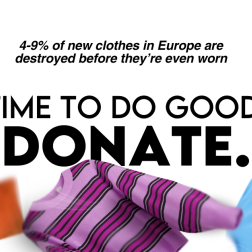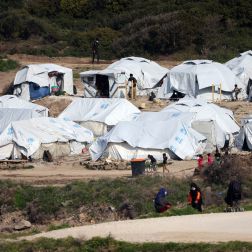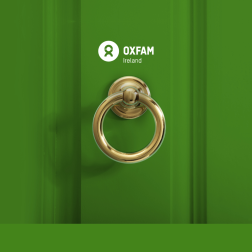- 8 mins read time
- Published: 27th January 2015
Celebrating the Female Food Heroes of Nigeria
Breakfast in Lagos, the same as the day before, two large slices of boiled yam (a root vegetable) with spicy egg sauce. Surprisingly it actually works as a breakfast and my stomach has been fine. The strong spices make the bland yam edible and I find myself enjoying the combination. Lunch and dinner will be more spicy soups and sauces along with fish or other meat and eaten with various porridges made from cassava and other crops. Nigeria, like the rest of West Africa, has a strong culinary history with a wide variety of dishes prepared from indigenous crops. Nigeria also has the hottest, spiciest food of any country in the world. If you have never tried it and especially if you have blocked sinuses, you need to try proper Nigerian hot pepper soup.
I was in Lagos for the 2014 Female Food Hero awards, a competition that began in Tanzania. These 12 great rural women came from all over Nigeria and were selected from more than 1,200 nominations. They, along with millions of other women, grow the crops, care for the livestock and in the end produce the food that makes up the exciting Nigerian cuisine I was enjoying. These 12 women spent a week together in Lagos in the build-up to the final award ceremony and announcement of the overall winners. In the past two years the awards were held only in certain states among women farmers that Oxfam and partners worked with, but this year for the first time it has become a national competition open to all women involved with primary food production.
During the week, the women joined together in morning exercises with Tony the trainer, who also works as a model and actor. They had training sessions with different people on a range of topics relevant for women and for farmers. They held discussions and went on field trips. To the end, even in celebrating the eventual winners, they demonstrated a unity that this large and complex country sometimes lacks.

Clockwise from top-left: Catfish at urban fish farm in Lagos – this visit showed how nutritious food can be produced and made into a good business, even with limited space. An exhibition of farmer produce set up during the award ceremony. The 12 finalists of 2014 competition join winners from previous years and a representative of the farmers organisation on a field trip. From left to right: second runner-up Chinasa Asonye; first runner-up Monica Maigari; and Female Food Hero 2014 Marian Buhari. From left to right: Oxfam’s Acting Nigeria Country Director Evelyne Mere; first runner-up Monica Maigari; overall winner Marian Buhari; second runner-up Chinasa Asonye; Oxfam Food and Land Rights Advisor Marc Wegerif. The finalists visit the Tropical Naturals Ltd factory which turns agricultural products like shea butter and honey and turn them into creams and products for export.
These women also underwent health checks and received healthy living advice. Stress management was one of the favourite topics. There are so many stresses that rural women face that they are normally expected to simply cope with themselves. They learnt they have a right to care for themselves and be cared for. There were also meetings with celebrities, actors, singers and women leaders. There were dramas that the women themselves prepared and as well as the hard work, lighter moments and lots of singing. The whole process was filmed and is being produced into a series of TV programmes.
The field trips included a visit to the inspiring factory of Tropical Naturals Ltd. They take agricultural products like shea butter and honey and turn them into creams and products like the famous Dudu-Oson black soap that is sold in Nigeria and exported. The dynamic Chief Executive Officer, Abiola Ogunrinde, stressed to the women the importance of adding value to all their agricultural products in order to get a greater return as farmers and for the nation.
An urban fish farm showed how nutritious food could be produced and made into a good business, even with limited space in a densely populated urban area. Some of the finalists are already involved with fish farming, others were inspired to start.
Nigeria is now the largest economy in Africa with 180 million people and famous for its oil industry, but agriculture remains a vital part of the economy. Agriculture makes up more than 30% of the economic activity and importantly 70% of all employment. Women provide most of the labour in the sector, but get little recognition and little support, something that these awards are working to change.
By highlighting the importance of women’s contribution to food production and the economy, the Female Food Hero awards help increase public support for women involved with food production. The awards also show the challenges women face, through the stories of the female food heroes themselves, told by themselves. We are asking for the creation of a more supportive environment for women food producers. Look what they have done despite all the challenges they face and imagine what they could do with a more enabling environment. The responses have been good and other women food producers have also been inspired.
On Friday 20th November the hall at the hotel was crowded and sometimes chaotic during an exciting celebration of the Ogbonge (strong, heroic, magnificent) Nigerian Women Food Heroes of 2014. As many speakers stressed, all the finalists are good representatives of the millions of hard-working women who produce most of the food in Nigeria. But everyone also wanted to know who would be the winner and walk away with the largest prizes.

Above, left-right: Some of the produce made by first runner-up Monica Maigari. Previous Female Food Hero award winner Gloria works out in the gym. Tony puts the women farmers through their paces in the gym.
Guests included government officials, NGOs, farmer organisation representatives and private sector representatives. Jennifer Abuah of OLAM Nigeria Ltd noted that of 10,000 cocoa farmers they work with on sustainable cocoa production, only 500 are women. “We know they are there, but they are not visible”, she said. “Women don’t own their land, they are farming the land that belongs to the men in their families and women are doing so many other things besides farming.”
Karima Babangida, the Head of Gender and Youth in the Federal Ministry of Agriculture and Rural Development, announced the winners for 2014, but not before she praised the “12 very beautiful hard-working women” who made it to the finals. She also committed the Ministry to providing start-up kits with fish for all the finalists to start or expand fish farming.
The second runner-up was Chinasa Asonye from Lagos state. A young married woman with three children, she has gone from only cultivating ofada rice to now processing and packaging the rice, for which she gets a much better return. Chinasa leased land from Lagos state government under the Rice for Jobs Initiative and has also branched into fish farming. Last year, she harvested 31 sacks of rice and 5.2 tons of catfish.
The first runner-up was Monica Maigari from Kaduna state. She is a mother of four and farms soybeans, maize, guinea corn, rice, poultry and goats. In 2013, she produced and sold 34 sacks of grains, 130 birds, 360 crates of layers and eight goats.
It was hard to get any picture of the winner, Marian Buhari, when she was announced as people crowded around with cameras to capture the moment. Marian is from Kwara state. She is married with five children and farms cucumbers, maize, cassava, melons, tomatoes, cabbage and fish. She was assisted by the Federal Ministry of Agriculture and Rural Development to get started in fish farming with catfish fingerlings (young fish) and two bags of fish feed. Now in 2014, she harvested over 150 tons of produce. Like Chinasa, she had also relied on renting other people’s land for her production.
The best speakers of the day were the women farmers themselves. The past winners shared how much the awards had meant to them, including their activities as ambassadors for women farmers that had taken them to national events and international events in the United States and African Union meetings in Ethiopia. This year’s finalists called for women to get better access to inputs, machinery, finance and land with secure rights.
As the finalists often chanted:
Ogbonge Women, Our Future! Ogbonge Women, Our Farmers! Ogbonge Women, Our Nigeria!
Marc Wegerif is a South African, currently based in Tanzania, who has worked on development and human rights issues in a range of organisations for over 25 years and has a Masters in Land and Agrarian Studies from the University of the Western Cape. Marc has focused on land rights issues for much of his professional life and is currently Food and Land Rights Advisor with Oxfam Ireland. In this role Marc is involved with international advocacy and running several multi-country projects. He is married with two daughters. This blog is a personal reflection and the views expressed are not necessarily those of Oxfam.




